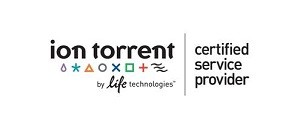The Preventomis® genomic screen analyzes, through massive parallel sequencing (Next Generation Sequencing – NGS), the DNA of 59 critical genes, which are involved in several types of life-threatening genetic diseases, such as certain cancers, heart diseases and aortic aneurysms (see list of genes and diseases).
A positive test result provides valuable information about specific risks and what the person can do to prevent the consequences of the disease.
The purpose of this genomic test is to uncover highly penetrant pathogenic mutations in any one of 59 genes, included in the American College of Medical Genetics and Genomics (ACMG) incidental findings recommendations (2016 update), which are associated:
- with high-risk for several types of cancers,
- with high risk for aortic aneurysms,
- with high risk for certain cardiogenetic disorders and
- with hypercholesterolemia
The disorders were currently selected and prioritized based on the beneficial medically-actionable early preventative measures and/or treatments, for those individuals with pathogenic mutations and who might be asymptomatic for long periods of time.
The current list of critical genes and the associated disorders may be expanded in the future.
The test is preceded by a personalized counseling session of the couple with our medical genetics team, in order to communicate the nature, purpose and limitations of the test and to provide written consent (informed consent).
Testing requires a biological sample (blood or saliva) from the person to be tested. The sample is shipped to our laboratory where genomic DNA is extracted, followed by exome enrichment for the 59 genes and massive parallel sequencing (also known as Next Generation Sequencing – NGS).
Sequence reads are then aligned and mapped to the human genome reference sequence and all variants and putative mutations are prioritized through a proprietary in-house bioinformatics pipeline.
Only known pathogenic or obligatory pathogenic (nonsense, frameshift, consensus splice-site) mutations will be reported, together with a full clinical assessment and clinical genetic evaluation.
A final clinical report is released, containing all the relevant findings and recommendations for further actions, where applicable. Positive findings are discussed in the context of a personalized genetic counseling session, during which the available preventive measures and medical interventions are discussed.

